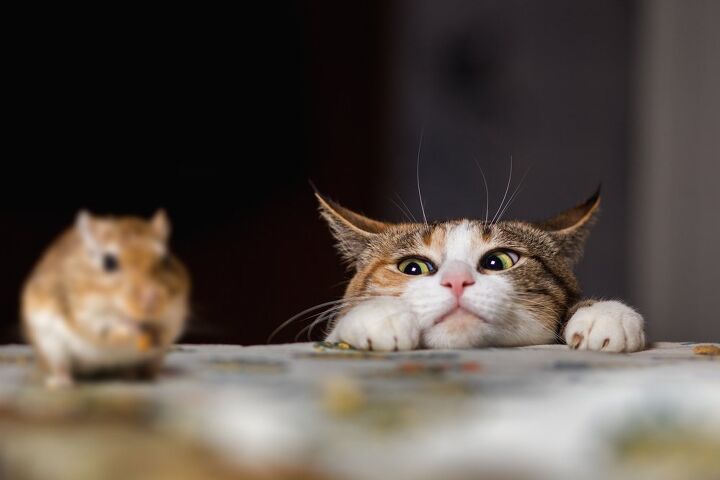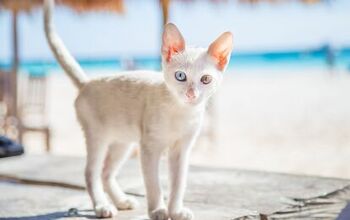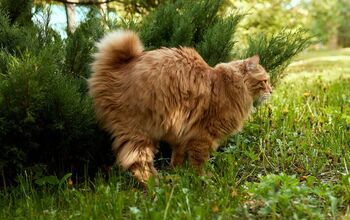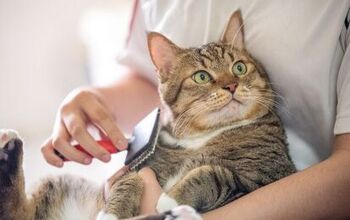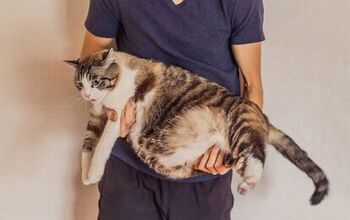Cats and Rodents – Keep or Immediately Dispose of Their Catch?

Let’s face it, prey drive in our furry felines runs high. Hence all those squeaky, mouse-shaped playthings we love stashing into their arsenal of toys. I mean, how fun is it to watch your cat chase, pounce, and then carry around her “kill” while making those low, guttural sounds that announce to the world that she’s caught and conquered that annoying fluffy toy?
But for those of us with cats that enjoy even a little outdoor time, this game of hunting a make-believe prey can become a little more disturbing when Fifi shows up with an actual dead mouse, bird, or other small creature. The only upside – if you can call it that - is that your pet will typically bring her kill back to her home environment where she feels she can play with or consume it, safely and at her leisure. And that upside we mention is because you can take it away from her.
Yes, while we may think it’s a natural, predatory instinct that’s impossible to discourage in our pets, our well-fed domesticated housecats will do far better health-wise, if they don’t catch and consume rodents. Here’s why.
Parasites and Disease
Mice, rats and other small vermin are renowned carriers of parasites that can be passed along to your cat when they’re allowed to play with or eat their catch. Now, when we say parasites, we’re talking about much more than just fleas. Internal parasites such as tapeworms, roundworms and pinworms can result in vomiting, diarrhea and other serious gastrointestinal issues that won’t resolve themselves. And because mice carry a parasite called Toxoplasma Gondii, your cat can pick up an infection known as Toxoplasmosis that will require your veterinarian’s intervention and some pricey meds.
Toxicity
With today’s composters and bird feeders providing a never-ending source of food for vermin, both rats and mice have now become an issue in both urban and rural areas. Unfortunately, neighbors may choose to use rodenticides to resolve this issue and if your cat happens to consume a live (or already dead) mouse, she too will be exposed to a potentially fatal dose of pesticide. Even slight ingestion of these poisons – such as what she might get from carrying around a dead mouse or rat - can result in seizures, lethargy, loss of coordination and gastrointestinal issues. Plus, a race to emergency for treatment.
Cross Contamination
Because cats will typically bring their kill home, you need to be diligent when it comes to protecting your living space. Even if your cat chooses to play with her dead mouse or rat versus consume it, your floors, carpets and furnishings will now have become exposed to those aforementioned parasites. The moment you notice her playing with something – dead or alive – immediately remove it from your home. Then wash or disinfect any areas known to have been exposed including her bedding, soft furnishings and floors.
And while even domestic cats are fully capable of devouring and digesting an entire mouse, bones and bits can cause choking or blockages that require a visit to your vet.
Steps to Prevent Your Cat from Catching Vermin?
To reduce or eliminate your cat’s tendency to bring home dead rats and mice, the easiest solution is to get rid of the food sources and cozy shelters that are known to attract this type of rodent.
1. If you compost yard waste and table scraps, be sure to bury any food items well below the top layer of decomposition to help decrease the scent and the understandable draw it can have for vermin. Or, consider using the growing-in-popularity bokashi system that ferments any food scraps to produce an odor that instantly deters rats and mice. Either method can prove effective at keeping rodents at bay.
2. For those who enjoy a bird feeder, know that rats will eat anything and everything – including the birds. And the spillage and errant seeds from those squirrel- and rodent-proof feeders will still allow vermin to chow down at ground level. So, consider spraying peppermint oil around the base/pole/rim of your feeder. Rats and mice don’t like the smell and it’s about the only scent that will help keep them away. The downside is that it will require diligence and regular treatments.
3. Another method to discourage rats and mice from raiding compost bins, congregating around bird feeders or seeking shelter in your home or sheds is fox urine. Seriously. I’ve used it to repel red squirrels from using my garden shed as winter storage for their black walnuts. And it works. It’s easy to buy online (though a bit pricey) and it can be sprinkled onto fabric, wood, or other surfaces to warn vermin off and effectively reduce your feline’s ready access to rodents.
4. Lastly, it may be time to fit a reluctant Fifi with a collar and bell that helps alert critters to her presence. While concerns are often raised about the hazard of a cat becoming snagged or choked when wearing a collar, today’s breakaway collar designs offer a quick-release snap that will release under pressure... which may explain why this type of collar is often sold in six-packs!
And if you’re still seeing your cat show up with dead rodents – or you’re finding them around your property – be sure to have her vet-checked and de-wormed regularly. While she may seem hale and hearty, her propensity for picking up (and spreading) these nasty parasites is infinitely increased. So, keep your pet and your household healthy by taking a proactive approach.

Sharing space with three seriously judgy Schnoodles and a feline who prefers to be left alone. #LivingMyBestLife
More by Mary Simpson



